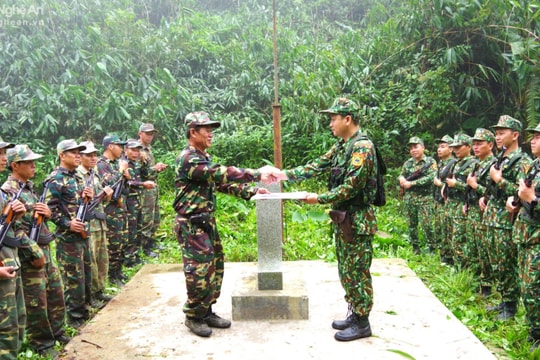How are State policies on Border Guards regulated?
Mr. Lu Dinh Thi, residing in Con Cuong district, asked: Currently, how are the State's policies on Border Guards specifically regulated?
Reply:
The Vietnam Border Law, passed by the 14th National Assembly at the 10th Session on November 11, 2020, is the first law to devote an article to regulating the State's policy on border defense.
.jpg)
Specifically, Article 3 of the 2020 Vietnam Border Law stipulates the State policy on Border Guard, including the following 7 contents:
1. Implement the policy of independence, sovereignty, unity, territorial integrity; build a border of peace, friendship, cooperation and development, and long-term stability with countries sharing borders; expand international cooperation, defense and security diplomacy, border diplomacy, and people-to-people diplomacy.
2. Resolve national border issues by peaceful means on the basis of respect for each other's independence, sovereignty, unity, territorial integrity, and legitimate interests, in accordance with the Constitution, Vietnamese laws, and international treaties to which the Socialist Republic of Vietnam is a member.
3. Use legitimate and appropriate measures to protect the independence, sovereignty, unity and territorial integrity of the Fatherland.

4. Implement the policy of great national unity; build a strong and widespread national border protection force, with the people as the main subject and the people's armed forces as the core.
5. Strengthen and enhance national defense and security; prioritize investment resources, modernize border works, develop economy, culture, society, science, technology, and foreign affairs in border areas.
6. Mobilizing resources of agencies, organizations and individuals in performing border protection tasks.
7. Encourage and facilitate agencies, organizations and individuals to provide material, financial and spiritual support for border protection tasks on the basis of voluntariness, not contrary to Vietnamese law and in accordance with international law.

.jpeg)



